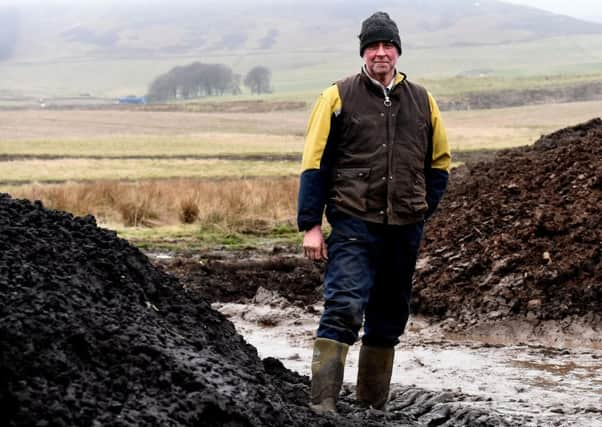State-of-the-art recycling turns '˜poo cakes' into farm crops


Scottish Water has revealed it is making “poo cakes” from human waste matter at its Seafield Wastewater treatment centre in Edinburgh and selling them to farmers as an organic, nutrient fertiliser.
The “TH cakes” are made using state-of-the-art thermal hydrolysis technology.
Advertisement
Hide AdAdvertisement
Hide AdCosting only £2.45 per tonne, compared with £200-£250 a tonne for artificial fertilisers, the initiative is being welcomed by some farmers at a time of financial constraint.
The industry employs around 67,000 people, and supports a further 360,000 jobs in Scotland – producing much of its £5 billion in food and drink exports.
John Davidson, farm manager at Penicuik Estate in Midlothian, said the “TH cakes” were better for the environment and reduced financial pressure on farmers.
“I started using the TH cakes after hearing about them from a farmer in East Lothian. They are extremely cost-effective and I’ve managed to cut my usage of artificial fertiliser by around 30 per cent.
“It’s a very slow-release fertiliser whereas the artificial kind is an instant hit and doesn’t last as long and can also leech into water courses. Another factor is that potash, used in artificial fertilisers, is not an endless resource, it has to be mined and won’t be there forever.”
Davidson added: “In the past every house had a midden and waste would eventually be taken out to the fields. This is just a high-tech, fast way of doing the same thing.”
Professor Hugh Pennington, emeritus professor of bacteriology at the University of Aberdeen, said the project was a positive recycling move.
“While there is a need to consider safety and chemicals going into it, these can be tested for and it is unlikely this would not be done. It’s a very good way of recycling stuff which would otherwise go into the sea.”
Advertisement
Hide AdAdvertisement
Hide AdHowever, Ian Sands, National Farmers Union Scotland combinable crops chairman, voiced reservations. “NFU Scotland would advise any members thinking of using thermal hydrolysis cakes to consider whether its use is acceptable for current or future buyers of crops grown on their land.
“For going on 20 years, the Scotch whisky industry has not accepted malting barley which has been grown on land which has ever had this kind of fertiliser used on it.
A spokesman for Veolia, which runs Seafield for Scottish Water, said the cake enriches the soil with key levels of nitrogen, phosphate and sulphur and was a useful soil conditioner.
Natalie Walker of Scottish Water said: “The green initiatives Seafield delivers, such as producing these organic poo cakes is a testament to the innovative work being delivered there.”
Seafield celebrates its 40th anniversary this week. Before 1978 waste was pumped into the Forth. From 1978 until 1998 it was dumped at sea by the vessel Gardy Loo.